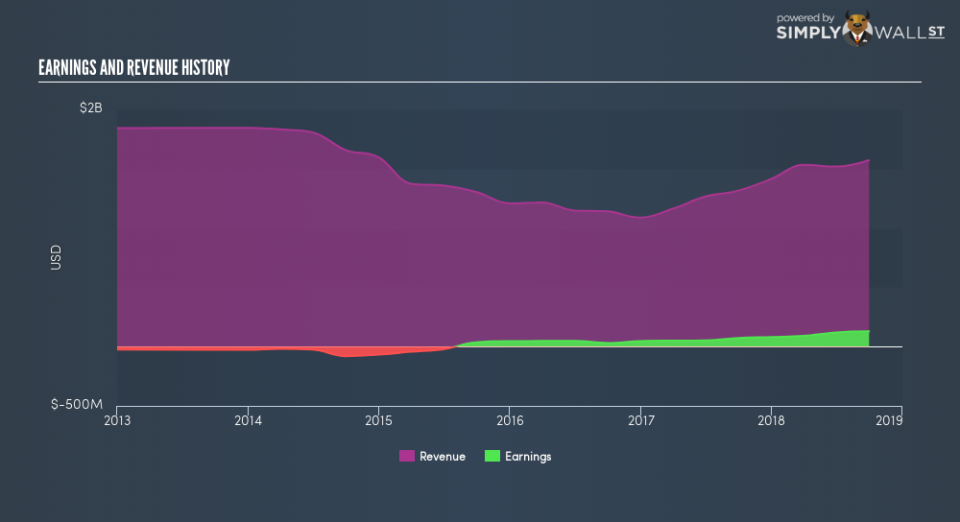Before You Buy Orion Engineered Carbons, S.A. (NYSE:OEC), Consider Its Volatility

If you own shares in Orion Engineered Carbons, S.A. (NYSE:OEC) then it’s worth thinking about how it contributes to the volatility of your portfolio, overall. In finance, Beta is a measure of volatility. Volatility is considered to be a measure of risk in modern finance theory. Investors may think of volatility as falling into two main categories. The first type is company specific volatility. Investors use diversification across uncorrelated stocks to reduce this kind of price volatility across the portfolio. The second type is the broader market volatility, which you cannot diversify away, since it arises from macroeconomic factors which directly affects all the stocks on the market.
Some stocks mimic the volatility of the market quite closely, while others demonstrate muted, exagerrated or uncorrelated price movements. Beta is a widely used metric to measure a stock’s exposure to market risk (volatility). Before we go on, it’s worth noting that Warren Buffett pointed out in his 2014 letter to shareholders that ‘volatility is far from synonymous with risk.’ Having said that, beta can still be rather useful. The first thing to understand about beta is that the beta of the overall market is one. Any stock with a beta of greater than one is considered more volatile than the market, while those with a beta below one are either less volatile or poorly correlated with the market.
Check out our latest analysis for Orion Engineered Carbons
Want to help shape the future of investing tools and platforms? Take the survey and be part of one of the most advanced studies of stock market investors to date.
What does OEC’s beta value mean to investors?
As it happens, Orion Engineered Carbons has a five year beta of 0.99. This is fairly close to 1, so the stock has historically shown a somewhat similar level of volatility as the market. Using history as a guide, we might surmise that the share price is likely to be influenced by market voltility going forward but it probably won’t be particularly sensitive to it. Beta is worth considering, but it’s also important to consider whether Orion Engineered Carbons is growing earnings and revenue. You can take a look for yourself, below.
Could OEC’s size cause it to be more volatile?
Orion Engineered Carbons is a small cap stock with a market capitalisation of US$1.6b. Most companies this size are actively traded. Small companies often have a high beta value because the stock price can move on relatively low capital flows. So it’s interesting to note that this stock historically has a beta value quite close to one.
What this means for you:
Since Orion Engineered Carbons has a beta close to one, it will probably show a positive return when the market is moving up, based on history. If you’re trying to generate better returns than the market, it would be worth thinking about other metrics such as cashflows, dividends and revenue growth might be a more useful guide to the future. This article aims to educate investors about beta values, but it’s well worth looking at important company-specific fundamentals such as Orion Engineered Carbons’s financial health and performance track record. I highly recommend you dive deeper by considering the following:
Future Outlook: What are well-informed industry analysts predicting for OEC’s future growth? Take a look at our free research report of analyst consensus for OEC’s outlook.
Past Track Record: Has OEC been consistently performing well irrespective of the ups and downs in the market? Go into more detail in the past performance analysis and take a look at the free visual representations of OEC’s historicals for more clarity.
Other Interesting Stocks: It’s worth checking to see how OEC measures up against other companies on valuation. You could start with this free list of prospective options.
To help readers see past the short term volatility of the financial market, we aim to bring you a long-term focused research analysis purely driven by fundamental data. Note that our analysis does not factor in the latest price-sensitive company announcements.
The author is an independent contributor and at the time of publication had no position in the stocks mentioned. For errors that warrant correction please contact the editor at editorial-team@simplywallst.com.

